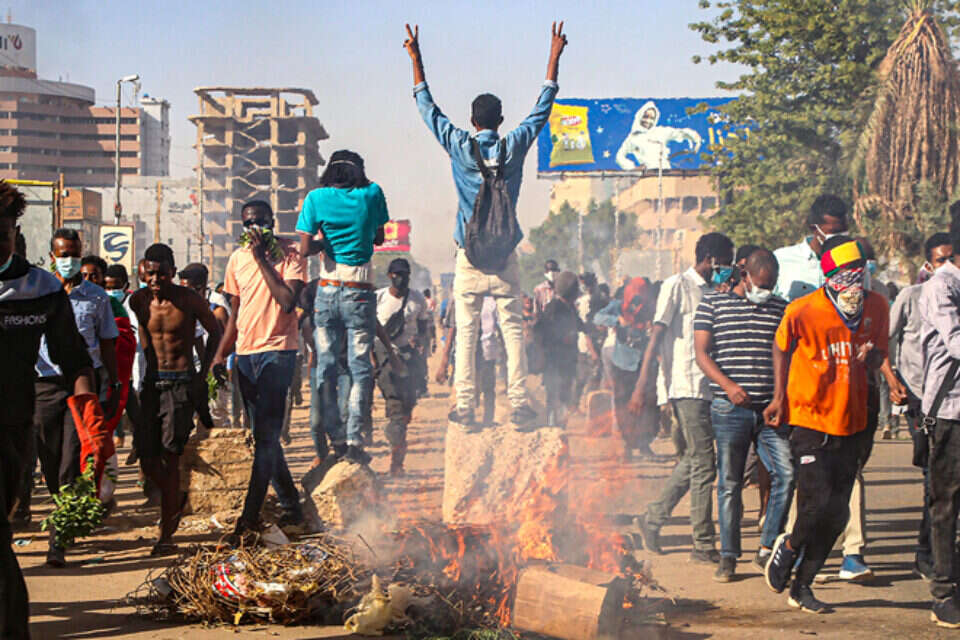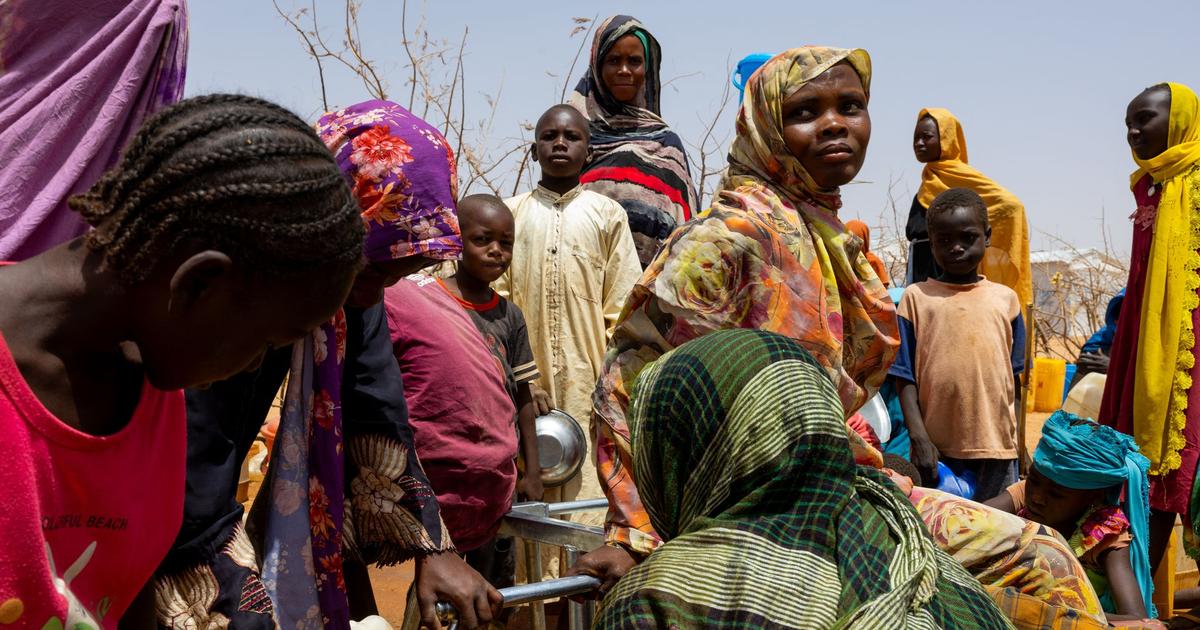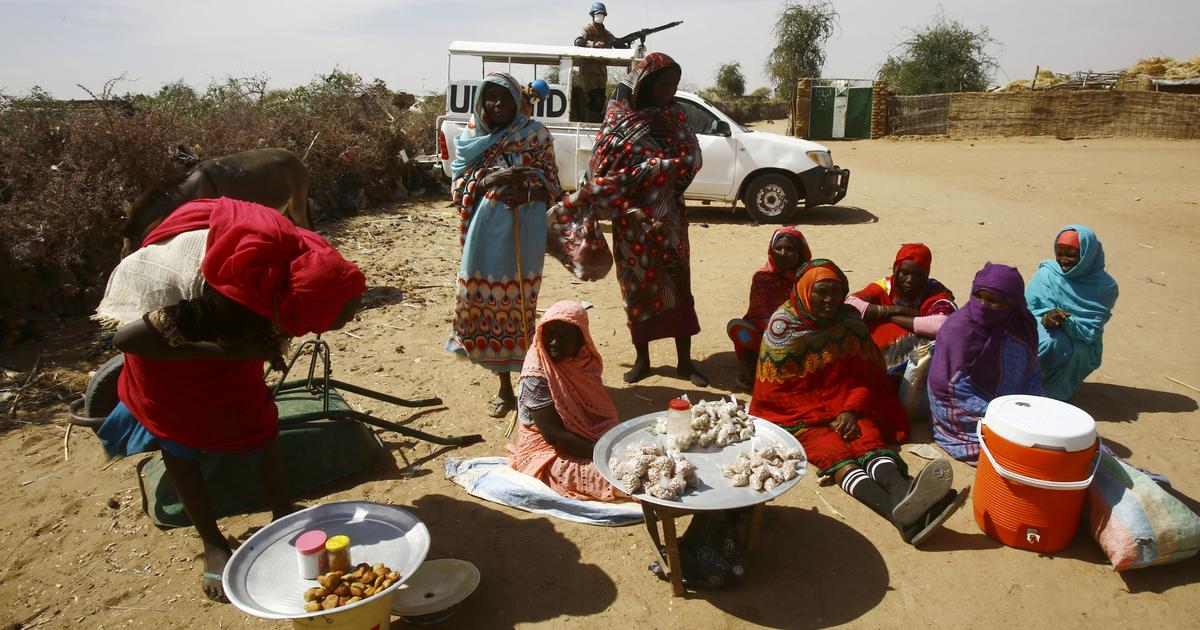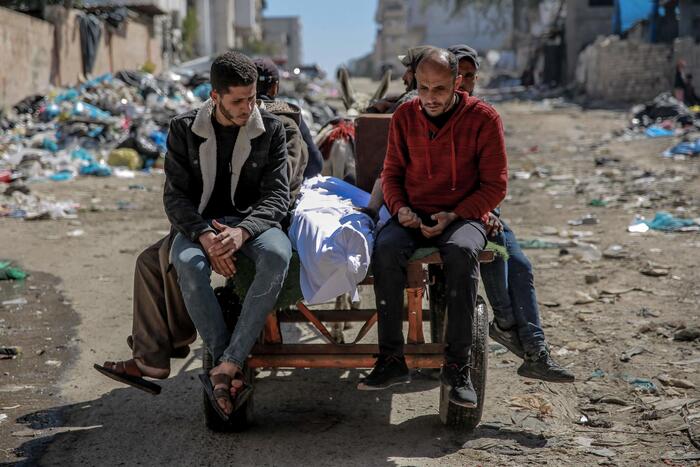In a smiling interview with the Saudi Al-Arabiya network last week, Sudan's deputy head of the Sovereign Council, Muhammad Hamdan Deklo, insisted that his army had no political ambition to integrate into political power.
Deklo described the criticism of the army that dispersed the sovereign council on October 25 as "demonizing," and assured that the current sovereign council, which includes military officials, intends to hold elections in the state.
The general was more concerned about the violence in the street demonstrations and claimed that a "third party" was exploiting them.
This is how he treated the thousands who marched towards the palace in Khartoum last month, following a meeting between General 'Abd al-Fatah al-Burhan and ousted Prime Minister Abdullah Hamduk.
Sudanese commentators estimate that Hamdukh's release was due to international pressure, but that the military will continue to maintain dominance in the Sudanese arena.
Megdi al-Ghizoli, an expert on Sudan, explained in an interview with the AFP news agency that the emerging cabinet would in fact be under constant threat of a military coup.
Al-Burhan, Photo: AP
Only in 2019 did a coup take place against dictator Omar al-Bashir.
Following mass demonstrations in the streets, a joint transitional government for civilians and the military was formed.
But the generals were not interested in an orderly transfer of power.
It so happened that al-Burhan's October coup cast a heavy shadow over the dream of democracy.
What the head of the sovereign council did not anticipate was the widespread international condemnation and a wave of protests in the streets after Prime Minister Hamduk was placed under house arrest.
The pressure from the West and the United States led al-Burhan to step back a few steps. One reason for this was the fear that the United States would return Sudan to the list of black countries, from which it was expelled following normalization with Israel.
Al-Burhan clarified that this issue is essential for the return of the country to the international community and that they are as interested in contact with Israel as with any other country.
Last month, al-Burhan met with Hamdukh and signed a 14-point agreement with him, including a commitment to hold elections in 2023.
The same agreement ostensibly restored civilian rule, but left much power in the hands of the military.
The international community and Arab countries welcomed the agreement.
However, the demonstrators in the streets did not relent following the compromise and demanded a complete withdrawal of the military elements from power.
Some saw the agreement as a betrayal of the prime minister, who was perceived as allowing the army to continue to hold power.
During one of the demonstrations, the demonstrators shouted: "Hamduk is weak, but the streets are strong."
The frustration can be understood in light of the heavy price charged by the anti-coup demonstrations.
Dozens were killed following gunfire from security forces and hundreds were injured.
No wonder, then, that al-Burhan is no longer seen as a legitimate political partner.
Maybe that's why over the weekend, in an interview with a Saudi channel, al-Burhan began to justify saying that some people wanted to hang the failure on the military.
According to him, the cancellation of the state of emergency in the country depends on an agreement with Hamduk and the Security Council.
He even insisted he would not run in the election, attacked the elites and the Deep State, and also promised to allow freedom for a "non-violent demonstration" and to investigate who was behind the killing of the protesters.
"The Deep State is everywhere," al-Burhan said, adding that the Bashir regime was part of the Deep State. There are political forces currently playing the same role ... there are political political forces that are delaying the democratic transition process. Some elites who report them. "
Were we wrong?
Fixed!
If you found an error in the article, we'll be happy for you to share it with us













